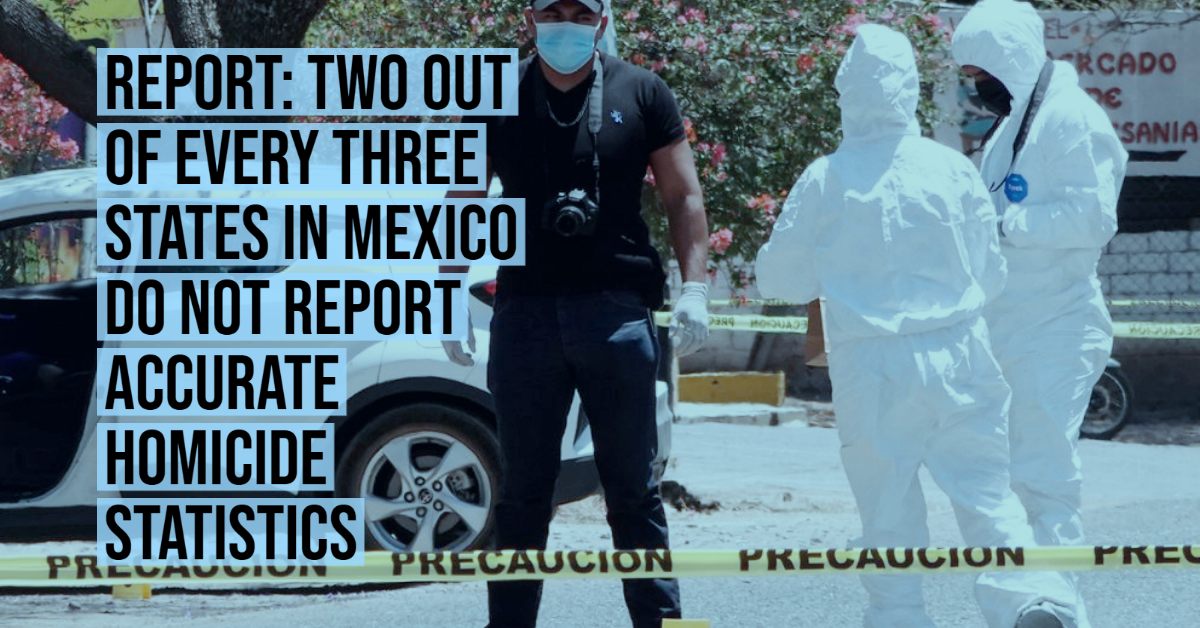Two out of every three states in Mexico do not have accurate and truthful data on the number of homicides that are committed each year, as revealed this Wednesday by a study from the organization México Evalúa.
The document called “Fallas de Origen” managed to identify the errors and omissions in the homicide counts reported by the 32 attorney general’s offices in the country.
Through four components -among them, the precision of intentional homicides, irregularities in culpable homicides, correlations in culpable homicides, and intentional homicides- the report allowed to obtain the Index of Reliability of Criminal Statistics (ICEC).
This concluded that the states with the best evaluation of homicides are Sonora, Yucatán, Campeche, Zacatecas and Chiapas.
While the worst evaluated were Tamaulipas, Tabasco, Guanajuato, Puebla and Oaxaca.
According to the NGO, the document highlighted the institutional weakness that the country is experiencing, thanks to the misclassification, underreporting, and intentional reclassification of criminal data, that is, the makeup of figures.
Edna Jaime, general director of México Evalúa, pointed out that a government that works with imperfect data “will not be able to generate an accurate diagnosis and precise solutions to counteract the wave of violence that is hitting Mexico.”
Jaime explained that for the preparation of this report, data were contrasted between various sources, such as those provided by the National Institute of Statistics and Geography (Inegi) and the Executive Secretariat of the National Public Security System (SESNSP).
Likewise, statistical tools were used that document suspicious patterns in the registration of wrongful death, that is, of an unintentional nature, which in some state reports behave in the same way as wrongful death.
This, he assured, constitutes a warning sign of possible manipulation of the information.
The report also shows the factors that could explain the failures in the registration of homicides in the country .
These range from the possible lack of training at the time of data systematization, limited investigative capabilities, to falsification of data, or deliberate intention to modify them.
It also presents proposals to combat the problem of misinformation.
Among the recommendations is the creation of an audit committee to review the generation of statistics, as well as to ensure compliance with existing regulations for reporting crime.
The creation of state institutions dedicated to the management of digital platforms, strengthening the processes for verifying crime statistics, and developing internal systems for the exchange and updating of criminal information is also proposed.
Mexico closed 2020 with 34,515 victims of intentional homicide, a figure just lower than the 34,648 cases in 2019, considered the most violent year in recent history for Mexico.
Two out of every three states in Mexico do not have accurate and truthful data on the number of homicides that are committed each . . .












